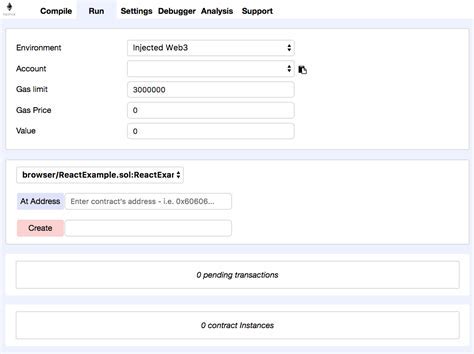Ethereum: How to call JSON RPC API from C?
February 9, 2025 4:57 am
Calling Json-Rpc API with C: Guide
The JSON-RPC (Javascript Object Noction Remote Call procedure) is a light, open standard for the call of remote procedure that enables developers to interact with servers through HTTP. Although the JSON-RPC protocol has become increasingly popular in recent years, it is still possible to call these APIs from the language other than Javascript, including C.
In this article, we will go through how to make RPC calls with C, focusing on calling JSON-RPC API using tools Curl command line and its equivalent for Windows:Curl.
Why use C for rpc calls?
Although it is possible to call JSON-RPC API in other languages, such as Python or Ruby, c provides several advantages:
* Performance

: C is a low level language that allows direct access to hardware resources, resulting in faster execution times.
* Memorium Management : C has manual memory management, which can be more effective than the garbage collection mechanisms found in other languages.
* Transportation
: C code can be launched on any platform that supports the standard library and Curl/Curl, which makes it a great choice for the development of cross-platform.
Step 1: Set your JSON-Rpc API
First you will need to set up your JSON-RPC API. This usually includes the formation of a server’s application using languages such as noda.js, Python or Ruby that exhibit interfaces with certain methods and parameters.
For this example, we will use the curl 'of the command line to interact with our JSON-RPC API.
Step 2: Write C code for API
Here's an example of how you can write a simple JSON-RPC API using C:
c
#include
#include
// Define the structure of API -ja
Typedef Struct {
Char* method;
void (func) (void);
} rpc_api;
// Function for handling incoming RPC requirements
Rpc_api hand_rpc_request (rpc_api api, contact char* method) {) {
// Check that the request is valid
IF (Strcmp (Method, “EXAMPLE_METHK”)! = 0) {{
printf (“Invalid request: %s \ n”, method);
return null;
Iche
// Call function with the value of argumentation at the place of the place
Char* Arg = “Greetings to the World!”;
API-> FUNC (ARG);
Return API -ja;
Iche
// Function for handling incoming RPC answers
void hand_rpc_response (void answer, int status_code) {
Switch (status_code) {
Case 200:
// Return the answer as json string
fprintf (stderr, “answer: %s \ n”, answer);
interruption;
Default:
fprintf (stderr, “error: %d \ n”, status_code);
return null;
Iche
Iche
// The main function for the processing of incoming RPC requests
int main () {{)
Rpc_api api;
// Initialize the API Function of a Book of Book
API.METHOD = “Example_mess”;
API.FUC = Hande_rpc_request;
// Set the HTTP server listener
Int server_fd, new_socket;
Address Struct Sockaddr_in;
socklen_t addrlen = sizeof (address);
// tie port 8080 to the socket
if ((server_fd = socket (af_inet, sock_stream, 0)) == 0) {{
Perror (“socket”);
Exit (1);
Iche
address.sin_family = af_inet;
address.sin_port = htons (8080);
Inet_pton (Af_inet, “127.0.0.1”, & address.sin_addr);
// Listen to incoming relationships
IF (Bind (Server_fd, (Struct Sockaddr *) & Address, Sizeof (Address)) == -1) {
Perror (“binding”);
Exit (1);
Iche
// Accept the incoming relationship
IF ((New_Socket = Acceptance (Server_fd, (Struct Sockaddr *) & Address, & Adrlen)) <0) {{
Perror (“Accept”);
Exit (1);
Iche
Printf (“Listening to the server on the attachment 8080 …
Categorised in: CRYPTOCURRENCY
This post was written by Munna


Comments are closed here.